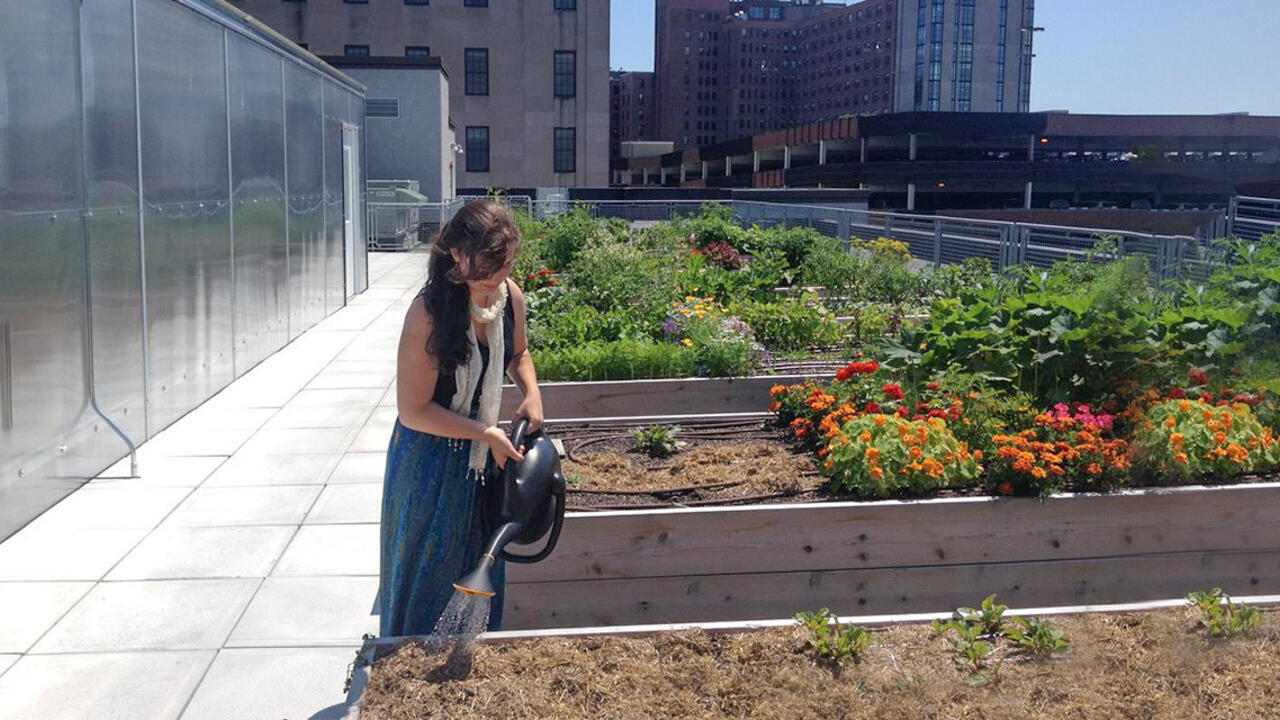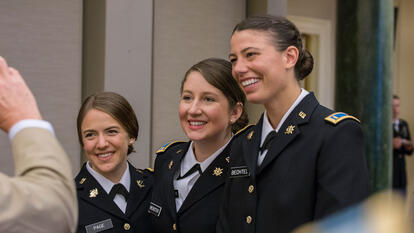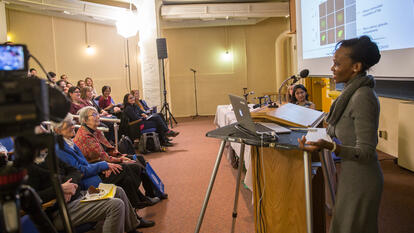On World Food Day, Meet Caroline George ’19, Champion of Food Justice

October 16 is the United Nations’ World Food Day, which promotes worldwide awareness and action for hunger issues around the globe. Caroline George ’19, who has been involved in food justice issues since high school, will soon take her passion for a hunger-free and healthy world to Washington as a member of the Emerson National Hunger Fellows Program.
The fellowship is “an extremely competitive program that seeks to develop leaders who will work to end hunger and poverty in the United States,” says Kate Dailinger, program director for fellowships at Wellesley, who worked with George during the application process. Created by the bipartisan Congressional Hunger Center, the fellowship places rising leaders with community-based organizations to gain first-hand experience. Then the Emerson Fellows return to Washington to complete a policy placement, bridging the gap between local efforts and national public policy.
For the first six months of her fellowship year, George will work with the Greater Cincinnati Regional Food Policy Council in Ohio, supporting its mission of advancing a healthy, equitable, and sustainable food system within a 10-county region. “I firmly believe that policymakers are more effective when informed by grassroots experience, and vice versa,” says George. “When trying to create true systems-level change, we need to work from as many angles as possible, and that effort is best when coordinated.”
Growing up with a father who was a chef at a local university, George was acutely aware of food justice issues, observing how much food industrial kitchens wasted. “I knew a system with such visible imbalances must be flawed, but didn’t have the tools to diagnose the problem,” she said. In high school, she began to work with Cultivating Community, a nonprofit organization in Portland, Maine, where she learned how to grow organic produce and advocate for social and environmental justice.
At Wellesley, George took a first-year seminar with James Morton Turner, associate professor of environmental studies, called Environment and Society: Food, Agriculture, and Sustainability, which explored the interdisciplinary nature of food systems. Through the class, she met Dominique Hazzard ’12, who at the time was working with DC Greens, a nonprofit in Washington that uses food education, access, and policy to advance food justice in the nation’s capital. A few years later, Hazzard connected George to the organization through a Wellesley in Washington internship.
“During my summer at DC Greens, Dominique and I talked about how to create systems-level change, and she told me about her own experience with the Emerson Fellowship. Without that first-year seminar, or the amazing alum network at Wellesley, I probably wouldn’t have known the Emerson existed,” says George.
Elizabeth DeSombre, Camilla Chandler Frost Professor of Environmental Studies, says, “In my work with Caroline, she has been an astonishingly creative researcher, finding sources of information others would not have turned up. She thinks analytically on any topic, trying to understand why and how the issue is a problem and what can be done about it, and she is deeply committed to equality and justice in all systems, both social and environmental.”
Photo: Caroline George ’19 waters a rooftop community garden while working for Cultivating Community in Portland, Maine.



